When I arrived at the camp, the morning was cloudy and wet. There were a handful of people around. Some got there the night before and had to pitch their tents in pouring rain. Some of us knew each other, some were strangers. We shared the space – but we weren’t there together.
By the time I left the camp, we were all a part of something. Something new and growing and hopeful. Together.
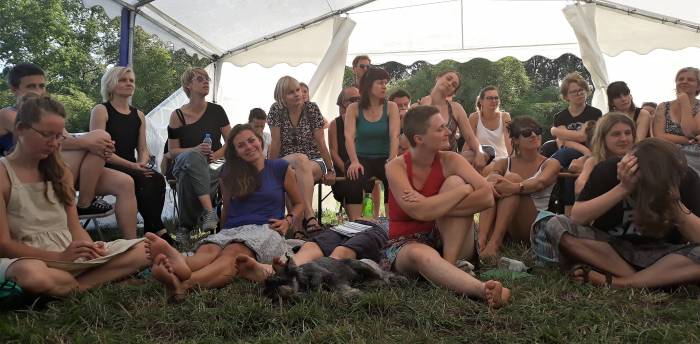
It’s not every day you witness a movement being born
“One day I will tell my kids about this. That I was there when the climate movement in Poland was born,” Kasia, one of the camp’s participants, told me. We were walking through a muddy field to take part in a discussion about the future of work in a world where climate is changing.
She had a bright, hopeful look in her eyes, a hunger even. And she wasn’t alone.
“Something is finally moving. We finally have a critical mass of people who want to talk about climate in Poland, and who want to act,” another participant, Monia, told me as we were sitting on the grass during a break. The sun had come out again.
Marek has been working to fight Poland’s coal addiction and air pollution for years in professional NGOs. “We’ve watched and learned from others – the successful movement to protect the Bialowieza Forest, the air pollution campaign – and we knew we needed to have that space to talk about climate, to learn, to share, to consolidate, to plan”.
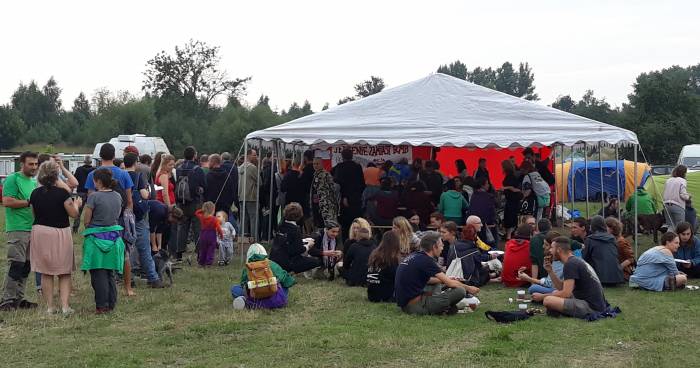
If you care about the climate, you are not alone
It made sense to feel excited and hopeful: the camp was the first time ever that people from across Poland could come together to talk and mobilise to stop fossil fuels.
Over the five-day programme, several hundred people came to the camp. We learnt a lot: the programme was full, from workshops on how to set up affinity groups for action, to local organisers sharing their experiences of making change happen in their communities; from discussions about a just transition for mining regions in Poland to a slogan-writing workshop.
But in between workshops we were also building a community. I remember coming late for lunch one day and feeling amazed: people who were strangers the day before were now chatting in the long queue or sitting in the grass in one of the many small groups eating together.
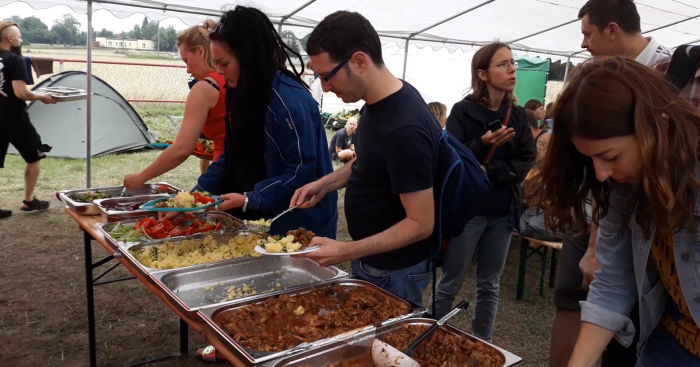
We were discovering the things we shared: caring for the planet, feeling the injustice as we watched a few powerful people destroy our landscape and our future for profit, the need to act.
We were discovering that we were not alone, and that others were ready to stand with us against fossil fuels. It didn’t take long to start being there together.
…and you can do something
People came to the camp from different places. Some were climate experts and campaigners. Some came from other movements, to build people power together. For some this was their first experience with climate organising and campaigning, and they came because they felt the need to act. At the camp we found what we were looking for.
“I came here as a Christian,” said Magda. “I believe God doesn’t want us to destroy this Earth. He wants us to redeem and save it. This is something that unifies all of us here: no matter if we’re believers or not, we care for the same cause. This is the message I want to share”.
Goja is an animal rights activist. “I came here to learn more about climate change. I also have knowledge to share, such as how industrial farming is harming our climate,” she told me.
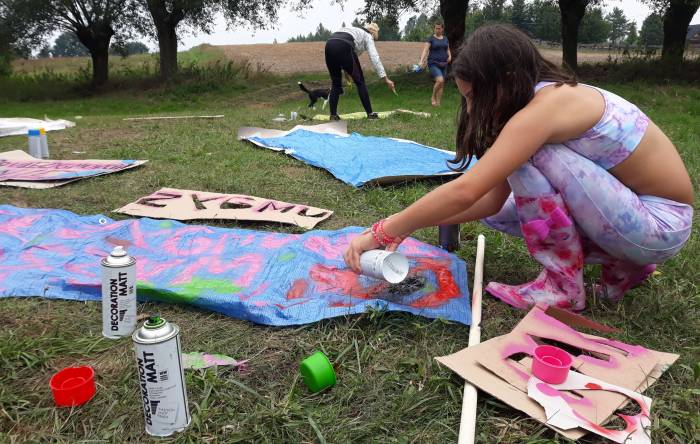
But the camp was also a space to meet and share experiences with others from across Europe and beyond. Climate justice activists from Germany, Czechia and even Colombia came to share their struggles and successes.
Miku is part of the climate justice movement in Czechia, called Limity jsme my, “We are the limits”. “It was necessary for me to come here, to Poland’s first climate camp, to support the struggle. The struggle for climate justice knows no borders”. Dorothee from Germany’s Ende Gelaende agrees: “It’s important to connect and help carry on the spark of climate action across borders.”
Inviting people to the table
Later, I ask Monika, one of the camp’s organisers, what motivated her. “I wanted to help build a space where people from very different backgrounds could meet, maybe for the first time, and talk about this huge challenge we’re all facing,” says Monika.
“I have a motto: if we’re not sitting at the decision-making table, we’re probably a dish being served. This camp is bigger than we expected, and equally, I hope that this table where decisions about our future are made will also grow bigger and bigger. That local communities, activists, NGOs, local authorities, we’ll all sit at this table together to talk about what’s important. And if we see someone missing from the table, that we know to invite them.”
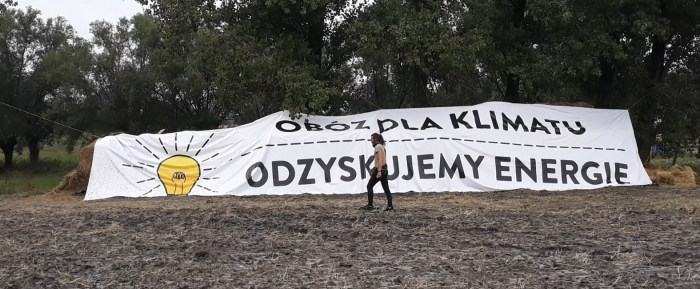
Reclaiming hope
I left the camp with the same feeling of hope, and the same spark in my eyes, that I saw that first day in Kasia’s. Can a real, radical, powerful climate movement really be born, and really make change, in the land of coal?
Climate activism used to be something difficult in Poland, reserved for NGO experts, professional campaigners and organisers. There were no open spaces for people to take action. But the climate camp, and the people who came there, changed that.
What happens now that the camp is over? The power and the hope are still there, and the activists are meeting after the summer, to craft the movement’s values, guiding principles and goals, and chart the way forward. And right now it feels like we just might succeed.
We are the climate justice movement and we are on the rise.